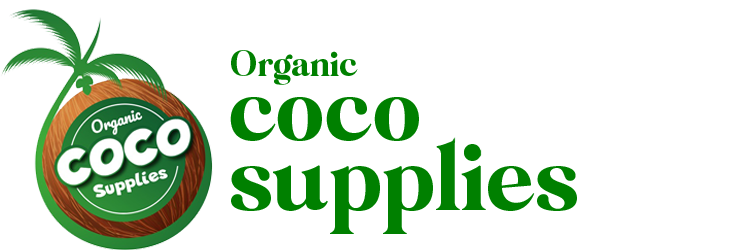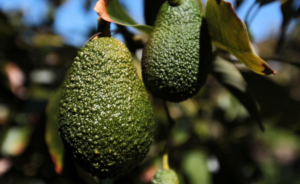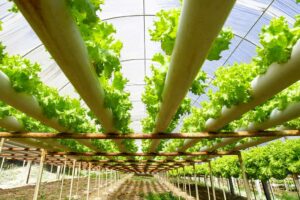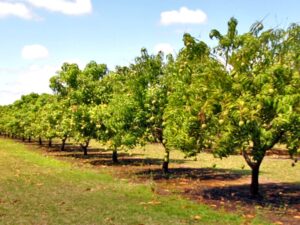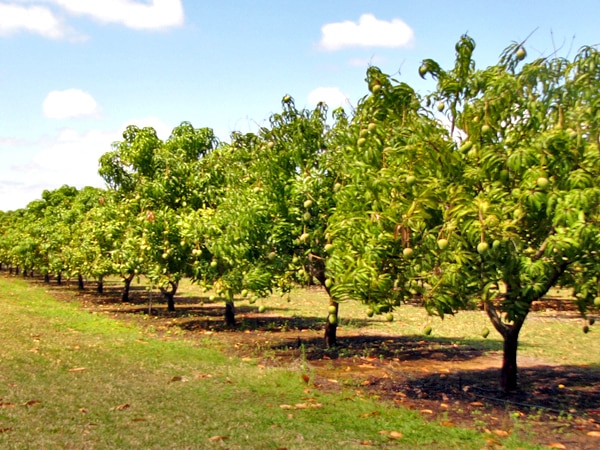

Introduction: In regions where water for irrigation is scarce, innovative agricultural techniques are essential for enhancing water use efficiency. The utilization of soilless culture techniques, such as open field soilless systems (OFSS), presents a promising solution. OFSS, which combines principles from both open field hydroponics and soilless horticulture, offers a method to optimize water and nutrient management while improving plant growth.
Background: Recent research has highlighted the potential of cocopeat substrate bags within the OFSS framework for enhancing fruit tree production. Cocopeat, derived from coconut fiber, provides a stable substrate with excellent air and water-holding capacities. This study explores the application of cocopeat substrate bags in a young Mediterranean persimmon orchard, aiming to improve tree growth and fruit yield.
Methodology: The experiment spanned four years, during which different treatments were evaluated, including traditional planting in soil (control), planting with cocopeat bags laid on the soil surface (Superficial bags), and planting with buried cocopeat bags (Subterraneous bags). Various parameters such as root growth, tree water status, nutrient levels, gas exchange, and fruit quality were meticulously monitored and analyzed.
Results: The findings revealed significant improvements in tree growth and fruit yield with the implementation of cocopeat substrate bags. Compared to traditional planting methods, trees with cocopeat bags exhibited enhanced vegetative growth and accelerated fruit ripening. Root colonization of the cocopeat bags was rapid, contributing to improved water status and nutrient uptake. Additionally, the surface installation of substrate bags proved to be as effective as buried placement, highlighting its cost-effectiveness.
Conclusion: This study underscores the efficacy of cocopeat substrate bags within the OFSS approach for enhancing persimmon orchard performance under semi-arid conditions. The findings suggest that adopting soilless culture techniques can offer a viable solution for improving water and nutrient use efficiency in fruit tree production. Further research is warranted to optimize fertilizer practices and explore the applicability of this technique across different fruit crops and environmental conditions.
Future Directions: Future research endeavors should focus on refining irrigation and fertigation strategies to maximize the benefits of OFSS. Additionally, investigating the adaptability of this technique to other fruit crops and varying soil conditions will be instrumental in expanding its applicability. Overall, the findings pave the way for sustainable agricultural practices that promote resource efficiency and crop productivity in water-limited regions.
